"When should I salt my steak?" This is the #1 question home cooks get wrong. For perfect results: thick cuts (>1.5 inches) need dry brining 24-48 hours before cooking, while thin cuts require just 40-60 minutes. This guide delivers simple, science-backed meat seasoning techniques that work for beginners yet satisfy advanced cooks - with immediate improvements you'll taste in your next meal.
The 5-Minute Meat Seasoning Solution (Beginner-Friendly)
Most home cooks make these three critical mistakes: salting too late, using the wrong salt type, and applying uneven spice blends. Here's how to fix them immediately:
- Salt Timing Rule: For everyday cooking, salt meat 1 hour before cooking for steaks/chicken, 30 minutes for burgers. This creates flavor penetration without excess moisture issues.
- Salt Selection: Use coarse kosher salt (not table salt) - its larger crystals distribute evenly and dissolve gradually during cooking.
- Simple All-Purpose Blend: Mix 2 parts kosher salt, 1 part black pepper, ½ part garlic powder. Apply ½ teaspoon per pound of meat.
| Common Meat | Prep Time | Basic Seasoning Ratio | Cooking Tip |
|---|---|---|---|
| Chicken Breast | 30-60 min | 1 tsp salt, ½ tsp pepper per breast | Rub under skin for juicier results |
| 8oz Steak | 1-24 hours | ¾ tsp salt, ¼ tsp pepper per steak | Pat dry before cooking for better sear |
| Ground Burger | Right before cooking | ½ tsp salt, ¼ tsp pepper per patty | Don't overmix to prevent toughness |
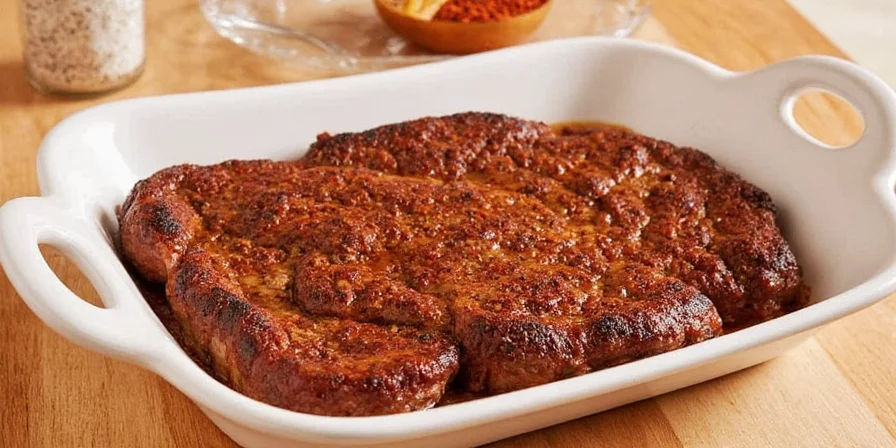
Why Your Seasoning Isn't Sticking (And How to Fix It)
Spices slide off meat because of improper surface preparation. Follow this proven method:
- Dry the meat thoroughly with paper towels (critical step!)
- Apply a thin layer of neutral oil (helps spices adhere)
- Rub spices in with your fingertips using circular motions
- Let sit 15 minutes before cooking to allow absorption
This simple technique creates restaurant-quality crusts at home. For lean proteins like chicken breast, add 1 teaspoon mustard to the oil for better spice retention without altering flavor.
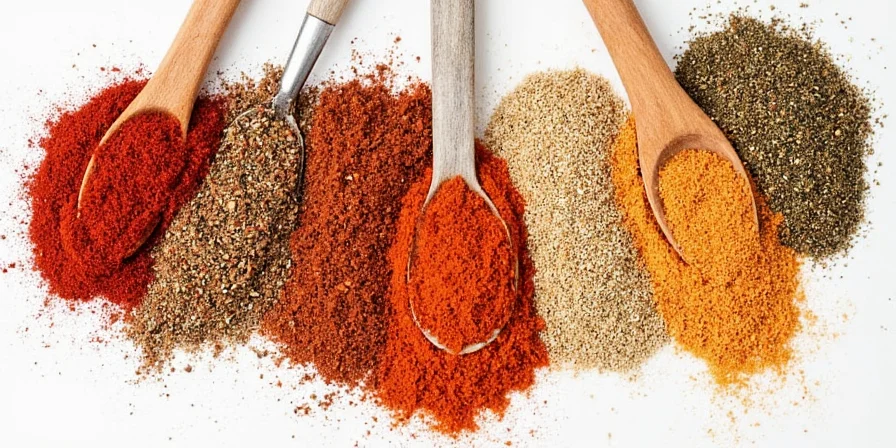
Advanced Techniques for Perfectly Seasoned Meat Every Time
Once you've mastered basics, these professional methods deliver exceptional results:
- Time-Optimized Salting: For special occasions, dry brine thick steaks 24-48 hours ahead. Salt penetrates 0.5 inches per day, transforming texture and flavor.
- Regional Flavor Matching: Pair cooking methods with authentic spice profiles - Argentine asado uses only coarse salt during grilling, while Caribbean jerk combines Scotch bonnet peppers with allspice for preservation.
- Sugar Control: Limit brown sugar to 15% of rub weight for high-heat cooking to prevent bitter carbonization while achieving optimal crust.
| Problem | Quick Fix | Pro Solution |
|---|---|---|
| Meat tastes bland | Apply more seasoning | Season in layers: 50% before cooking, 50% after resting |
| Spices burn | Cook at lower heat | Mix rub with 20% rendered fat (not oil) for higher smoke point |
| Uneven flavor | Rub more thoroughly | Dry brine + use spice penetration chart for optimal timing |
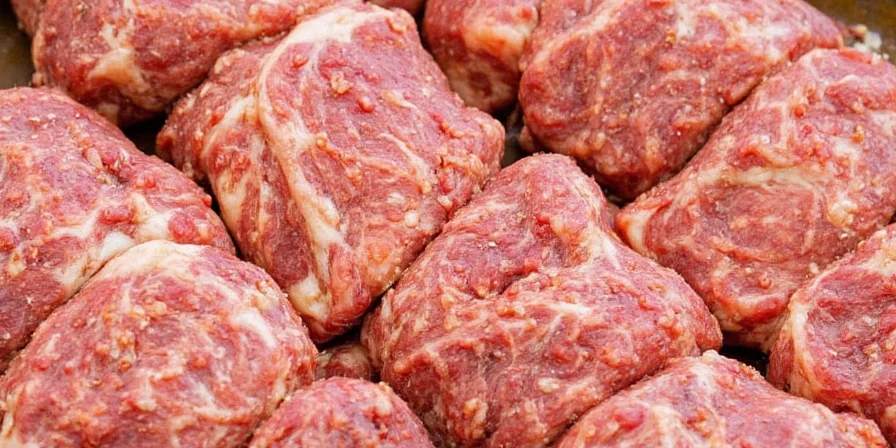
Frequently Asked Questions
How long before cooking should I season meat?
For weeknight cooking: 30-60 minutes for steaks/chicken, right before cooking for ground meats. For special occasions: dry brine thick cuts 24-48 hours ahead. This gives salt time to penetrate while drawing out excess surface moisture for better searing.
Can I use fresh garlic instead of powder?
Fresh garlic causes uneven browning and can burn easily. For best results, use garlic powder in rubs. If you prefer fresh, mince very finely and mix with oil to create a paste that won't burn as quickly.
Why does my seasoning taste bitter?
Bitterness usually comes from sugar burning. Reduce sugar content in your rub (keep under 15%) or apply sugar-based rubs only during the last 15 minutes of cooking. Paprika and cumin can also turn bitter when overheated - toast whole spices first, then grind.
What's the best salt for seasoning meat?
Coarse kosher salt is ideal for most home cooking. Its larger crystals distribute evenly and dissolve gradually. For brines, use table salt as it dissolves faster. Sea salt works well for finishing after cooking.
Key Takeaways for Perfectly Seasoned Meat
Master meat seasoning with these actionable steps:
- Always dry meat thoroughly before seasoning
- Use coarse kosher salt for best results in most situations
- Season steaks 30-60 minutes before cooking for weeknight meals
- Apply spices with oil for better adhesion
- For special occasions, dry brine thick cuts 24-48 hours ahead
Implement just one of these techniques in your next meal and you'll notice an immediate improvement in flavor and texture. The simplest change - properly timing your salt application - transforms even budget cuts into impressive dishes. For printable seasoning cheat sheets and specific ratios for 20+ meats, visit our meat seasoning resource library.
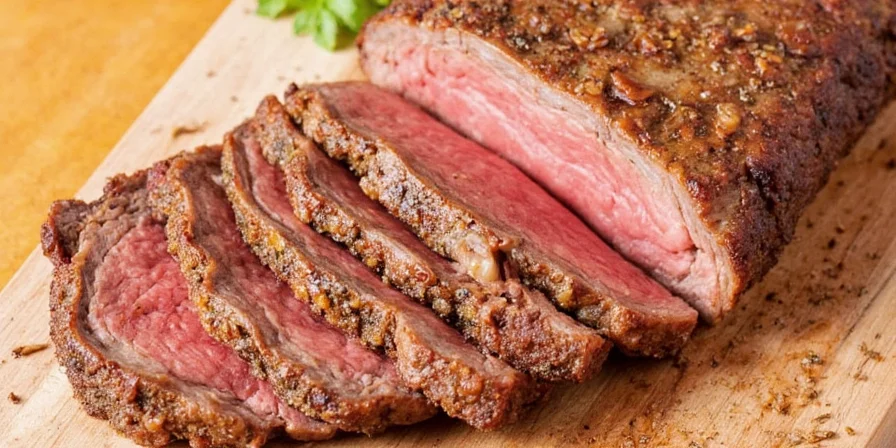

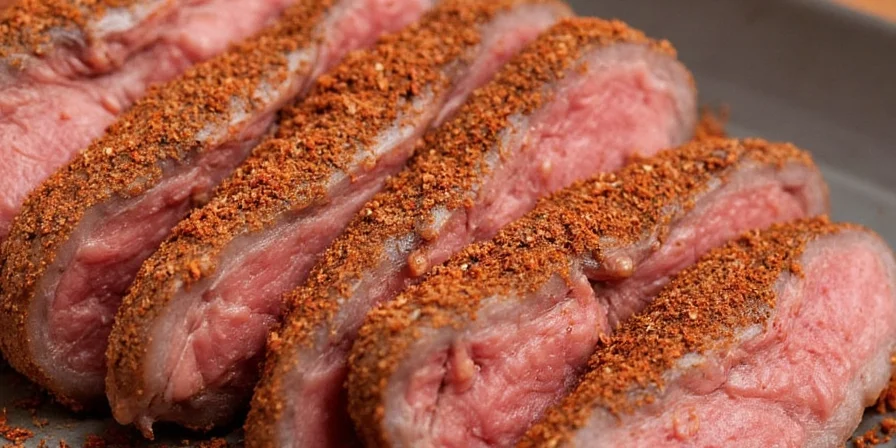









 浙公网安备
33010002000092号
浙公网安备
33010002000092号 浙B2-20120091-4
浙B2-20120091-4